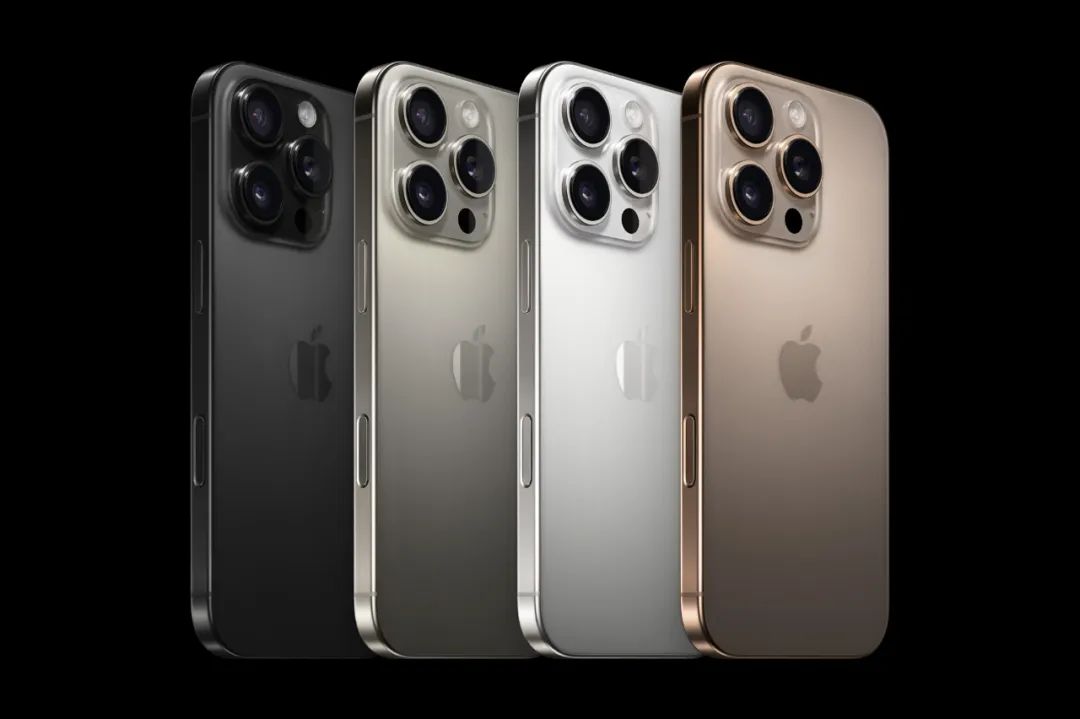iPhone lacks innovation, choose Apple or Huawei?
![]() 09/10 2024
09/10 2024
![]() 521
521
Written by Yang Jianyong
For a long time, Apple's fall new product launch event has attracted much attention, and the brand-new iPhone 16 remains the focus of everyone's attention. From the appearance point of view, there is still no major change. Among them, the two models of iPhone 16 Pro and Pro Max have the biggest change compared with the previous generation products, which is the increase in screen size, from 6.1 inches and 6.7 inches to 6.3 inches and 6.9 inches, respectively.

As for the body material, there is almost no difference except for individual colors. In terms of price, the starting price of iPhone 16 Pro is 7,999 yuan, and the starting price of iPhone 16 Pro Max is 9,999 yuan.
The performance improvement in terms of chips has been ridiculed as "squeezing toothpaste." Although the performance has been improved compared to the previous generation's A17 chip, fixing some defects, it adopts TSMC's second-generation 3nm (N3E) process technology. However, according to TSMC's disclosed data, N3E will bring about a 5% performance improvement compared to N3.
Meanwhile, Apple's released data shows that the CPU performance of A18 has increased by 30% compared to A16, with a 30% reduction in power consumption. However, there is no comparison with A17, suggesting that A18 does not have significant performance improvements over A17.
It is noteworthy that Apple has announced Apple Intelligence, its first generative AI model, which will be launched in October with iOS 18.1. Initially, this feature will support American English. However, Apple stated that Apple Intelligence will support more languages, expanding to localized English in Australia, Canada, New Zealand, South Africa, and the UK in December, and adding support for Chinese, French, Japanese, Spanish, and more languages next year.
Apple Intelligence leverages the power of generative models in personal scenarios, providing helpful and relevant intelligent functions tailored to users' needs. Deeply integrated with iOS 18, iPadOS 18, and macOS Sequoia, it harnesses the power of Apple chips to understand and generate language and images, perform cross-app operations, simplify and accelerate daily tasks based on individual user contexts, all while protecting users' privacy and security.
It's worth noting that during the Jobs era, Apple was considered a global benchmark for mobile phones, leading the development of the global smartphone industry and maintaining strong competitiveness worldwide as the best-selling high-end smartphone globally. However, under Tim Cook's leadership, Apple has lost the innovative spark of the Jobs era. Under his stewardship, Apple has yet to introduce a groundbreaking hardware product or service, relying primarily on its tried-and-true trio of iPhone, iPad, and Mac.
Ultimately, while Tim Cook may not have brought disruptive technological innovations to Apple, it cannot be denied that he is a shrewd businessman with unparalleled profit-making abilities. By leveraging the iPhone, Apple has secured a substantial share of the global high-end smartphone market, earning the largest profits in the mobile phone industry. In fiscal year 2023, Apple's net income reached an astonishing $97 billion, equivalent to nearly 700 billion yuan, with projections for fiscal year 2024 suggesting that this figure could surpass the $100 billion mark.
Concurrently, Apple has also shone brightly in the capital markets, becoming the first company globally to surpass a market valuation of $3 trillion, currently sitting at $3.36 trillion, firmly entrenched as the world's most valuable company. Overall, the iPhone's exceptional global earning power has allowed Apple to amass vast profits, positioning it as the world's most profitable technology enterprise, truly earning vast sums on a daily basis. Such profitability remains out of reach for other mobile phone manufacturers.
However, with Huawei's strong comeback, Apple faces significant challenges. Notably, Huawei's launch of a tri-foldable phone has garnered a staggering 3.5 million pre-orders, and its decision to release the phone on the same day as the iPhone 16 underscores Huawei's technological prowess in directly competing with Apple. On the whole, Apple's lack of notable innovation has led consumers to favor Huawei.








